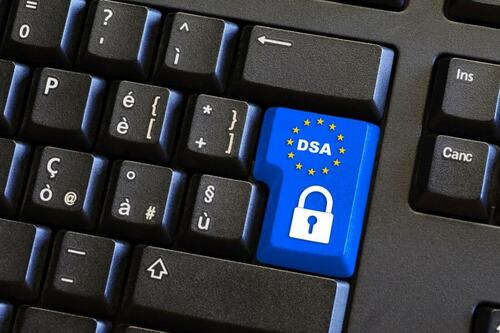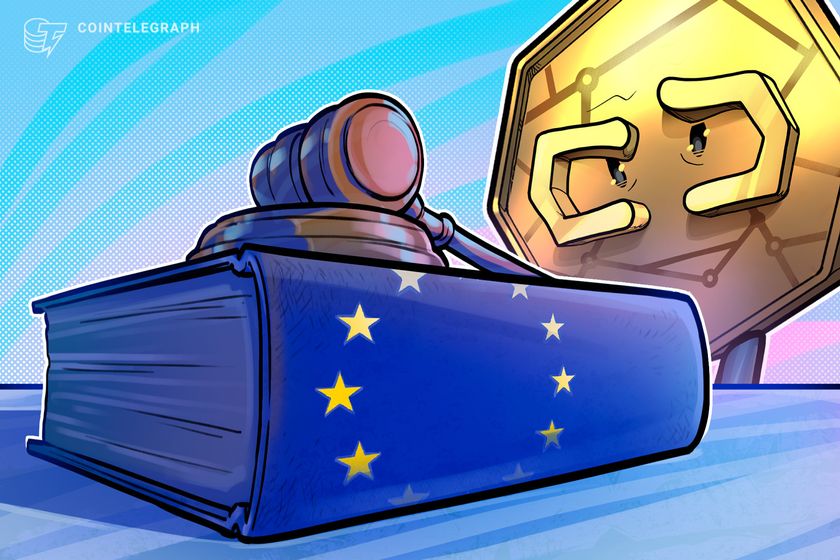American Free Speech Vs European Censorship
American Free Speech Vs European Censorship
Authored by Drieu Godefridi via The Gatestone Institute,
-
What is important is the solidarity being forged between the major US social media platforms and the incoming US administration in support of real freedom of expression.
-
The new US administration will not tolerate levying fines of tens of billions of dollars on major US technology companies by an EU that is drifting towards authoritarianism and is at the same time more dependent than ever on American power.
-
It would be in Europe's lasting interest to prepare for the return of free and unfettered expression.
Anyone wishing to gauge the extent of the European Union's regulatory drift will need to read Articles 34 and 35 of the Digital Services Act (DSA).
Given their length it is impossible to quote them in full here, so here is an extract:
DSA Article 34, "Risk assessment":
"1. Providers of very large online platforms and of very large online search engines shall diligently identify, analyse and assess any systemic risks in the Union stemming from the design or functioning of their service and its related systems, including algorithmic systems (...) and shall include the following systemic risks (...) (a) the dissemination of illegal content through their services (which includes 'hate speech'); (b) any actual or foreseeable negative effects for the exercise of fundamental rights, in particular the fundamental rights (...) to non-discrimination; (c) any actual or foreseeable negative effects on civic discourse and electoral processes, and public security; (d) any actual or foreseeable negative effects in relation to (...) public health (...) and serious negative consequences to the person's physical and mental well-being (...)."
Article 35, "Mitigation of risks," obliges these platforms to take a whole arsenal of preventive and repressive measures, basically to prevent the sharing of information that displeases the European Commission.
In short, the idea is to force these platforms to pay hordes of patrol officers to relentlessly hunt down opinions that do not please the European Lord. The preventive nature of these measures means that they can be described as censorship in the strict sense. What's more, general censorship, because the terms used by the European legislator - hate, non-discrimination, civic discourse, electoral process, public security, public health, well-being - are so vague that censors with (digital) scissors do cut wherever they please, at the whim of the European Prince.
Meanwhile, in the USA
Elon Musk has never made a secret of his adherence to the American concept of freedom of expression, which is that expression is free regardless of what the law says.
By contrast, according to the European Convention on Human Rights, expression is free with legal exceptions. For a long time, these exceptions were rare, with the result that expression remained almost as free in Europe as in the United States. Over the past 30 years, however these European exceptions to free expression have multiplied — hate, discrimination, racism, Islamophobia, transphobia, and so on — to the extent that European citizens - including those in the UK - are now being arrested, tried and imprisoned for expressing inappropriate ideas on Facebook, X/Twitter and other social media platforms.
But then, you might ask, why can't the two concepts of expression -- free in the USA, censored in Europe -- coexist, each in its own way, on our respective continents?
The problem is that the European Union has an imperialist conception of its regulation. The EU does not regulate Europe; it seems to think it regulates the world. True to the rich German and French legal traditions, the EU sees itself as a kind of legislative model for the planet. Not only is the EU taking the initiative to regulate sectors that were not regulated before, it also seems to expect the rest of the world to follow suit.
Better -- or worse, depending on your point of view -- the EU is backing up its global regulations with sanctions no less global. Apple was recently hit with a landmark $2 billion EU antitrust fine. Breaches of the Digital Services Act (DSA) are punishable by penalties calculated as a percentage of revenues -- not profits -- received by the company concerned not just in Europe, but all over the world. In the case of companies such as Meta (Facebook) or X, we are talking about EU fines running into billions of dollars. Since they seem not to be able to innovate -- anyhow, they haven't -- they tax Americans, who have.
All the "major platforms" that the European Union is regulating with imperial superciliousness are in fact American. Therefore, none of these platforms is subject to the august EU. As technology expert Jason Oxman remarks, "the EU [has] become as sterile in innovation as it is fertile in regulation."
This puts the EU and its DSA on a collision course with the incoming Trump administration. With touching naivety, the German media on January 8, 2025, greedily called for DSA sanctions to be applied to X and to Meta (Facebook).
The major news on January 7 was the about-face, at least for now, of Meta's Mark Zuckerberg, and his Facebook and Instagram, to the Muskian concept of free speech, pretty much as enshrined in the US Constitution. Whether or not this endorsement is self-serving is irrelevant. What is important is the solidarity being forged between the major US social media platforms and the incoming US administration in support of real freedom of expression.
Consequently, either American free speech will impose itself on Europe, or, less likely -- unless the Europeans show a sudden desire for tyranny -- Europe will impose its conception on American platforms. There can be no coexistence of the two concepts. If the EU had been legislating only for Europe and providing for local sanctions, the two concepts might have coexisted. The hubris of the EU's grandiose vision of global sanctions makes this coexistence unlikely.
The European king has no clothes
A prediction: American free speech will win the day. Europe is weak, and the EU as a bureaucracy is increasingly hated by Europeans, not without reason. Without NATO, Europe would not exist militarily. With no American security guarantees, Europe can prepare for the return of Russian troops to Berlin. Above all, Europe exports more to the US than it imports. In 2022, trade in goods and services between the United States and the European Union totaled an estimated $1.3 trillion. US exports amounted to $592 billion and imports to $723.3 billion, as Trump reminds us of it at every one of his press conferences.
The new US administration will not tolerate levying fines of tens of billions of dollars on major US technology companies by an EU that is drifting towards authoritarianism and is at the same time more dependent than ever on American power. To imagine otherwise, you would have to be as naive as a German bureaucrat.
It would be in Europe's lasting interest to prepare for the return of free and unfettered expression.
Related Posts
WATCH LIVE: Kristi Noem Hearing Before Senate Homeland Security Committee
Gov. Kristi Noem is set to be grilled in her confirmation hearing on Friday before the Homeland Security and Governmental Affairs Committee. ]]>...
SpaceX Did Amazing Things Again During 7th Starship Launch, but Then There Was a Big Problem
ATA[Elon Musk has done some astonishing things with SpaceX, including being able to bring back a booster and catch it, in a pretty incredible feat.]]>...
Biden sets record by commuting sentences of nearly 2,500 people convicted on nonviolent drug charges
victed of nonviolent drug offenses, using his final days in office on a flurry of clemency actions meant to nullify prison terms he deemed too harsh. ...
LISTEN: Should Americans fear the 'tech-industrial complex?'
e show to talk about the impact of AI on the military and intelligence community, the future of major U.S. government cloud contracts, and much more. ...







